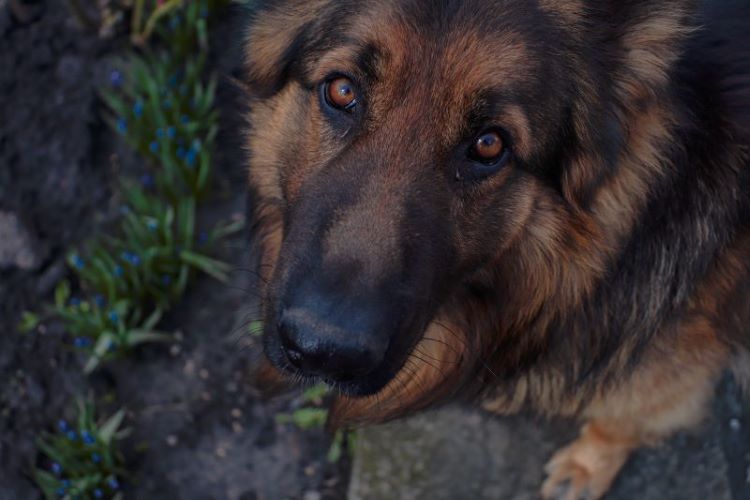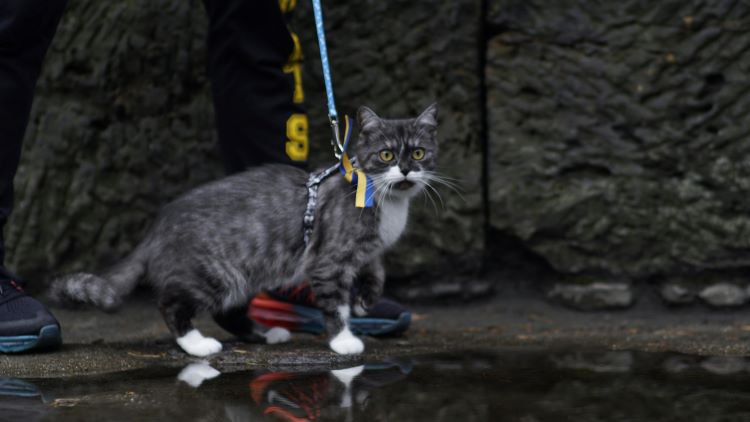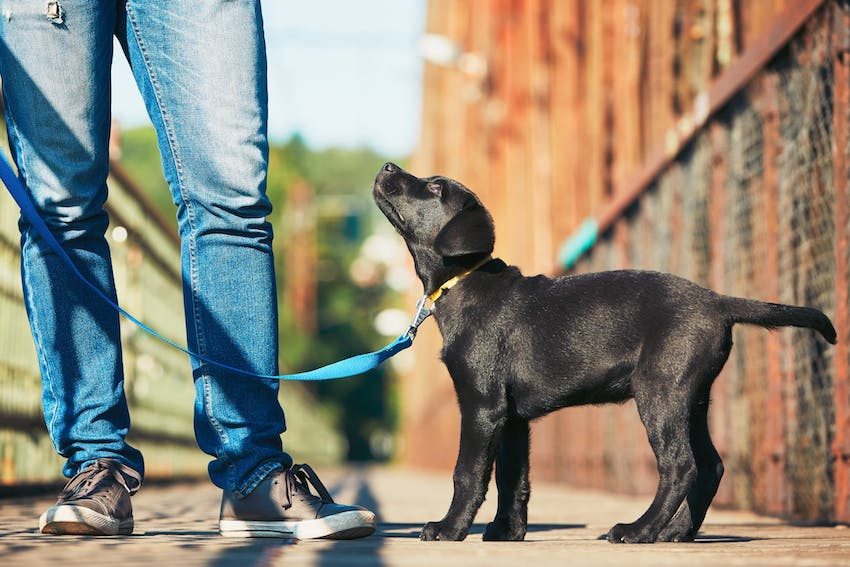Ready to help treat your pet to a healthy life?
Is Your Pet in Your Emergency Plan? Vital Preparedness Tips for Pet Owners
By : Brianna Gunter & Trupanion Staff | Updated May 22, 2025

Floods, fires, earthquakes, hurricanes, and other natural disasters affect everyone in their destruction path, including animals. When making a plan for your family, it’s important to consider dogs and cats as well. Whether it's a natural disaster or a man-made one, create a plan for handling emergencies for every family member.
According to the National Climate Data Center, natural disasters cost more than $180 billion in damage in 2024 alone. While your likelihood of being severely impacted by one of these is relatively low, the truth is that everyone is at risk of some kind of emergency. And when we take into account smaller-scale situations, the personal risk increases — an average of 350,800 house fires are reported annually in the United States every year.
So, what can you do about it? You can't guarantee you'll never be in an emergency, but you can take important steps to lessen the impact. It’s important to prepare your family for a dangerous even and to take your pets into consideration when formulating your emergency plan.
7 pet emergency preparedness tips
The thought of anything bad happening to your pet can be terrifying, but you can help lessen the worry by being prepared ahead of time. There are several key actions you can take to be ready for pet emergencies as well as help prevent them from happening in the first place.
1. Prepare a pet emergency kit
This may or may not be obvious, but be sure to put together some pet emergency supplies to store alongside those for humans. When you are forced to evacuate your home due to a natural disaster, typically you will not have the opportunity to pack a bag. It’s important to have emergency kits, including a pet emergency kit, already packed and stored by the door for a quick departure.
Food
Several days’ worth of your pet’s food will help bridge the gap before you are able to purchase more. Your pet will already be in a stressful state, so keeping his diet as consistent as possible will be important.
Water
During a natural disaster, clean water may be at a premium, so stock up on bottled water.
Collar with ID tag & leash
During an emergency, your pet may have the instinct to want to flee. Having an extra collar and leash are important to make sure you are able to secure your pet, and ID tags should always be attached in case your pet gets free.
Medicines
If your pet is on any medication for existing medical problems, it’s important to have at least a few days’ to a week’s worth in your pet emergency kit to cover you until you are able to get to a veterinarian. Make sure to consistently rotate these medications out of your emergency kit so the medication is never past its expiration date.
While you're at it, you'll also want to put together a pet first aid kit for emergency situations that might require extra care upfront.
Medical records
Keeping a copy of all medical records and other important documents (like purebred papers or city registration papers) in a pet emergency kit will ensure that any veterinarian you need to see will have a detailed history of your pet and you are able to clearly prove ownership in case there is a question.
Favorite things
Pets can sense stress, so to keep them as comfortable as possible, include items that are familiar to them — such as toys, treats, or blankets that smell like home.

2. Know your region's natural disaster risks
Creating your Pet Emergency Kit will help you in a variety of emergencies, from fires to floods. However, it’s beneficial to be prepared for those specific emergencies that are known to affect your region. According to FEMA and Ready.gov, the following is a list of the common emergencies specific to regions across North America.
United States
- Blizzards – Colorado, Idaho, Illinois, Indiana, Iowa, Kansas, Michigan, Minnesota, Missouri, Montana, Nebraska, North Dakota, South Dakota, Wisconsin, Wyoming
- Earthquakes – Arkansas, California, Illinois, Kentucky, Missouri, Oregon, Tennessee, Utah, Washington
- Flash floods – Arizona, Colorado, Kentucky, New Mexico, South Dakota, Texas
- Hail – Colorado, Illinois, Iowa, Kansas, Minnesota, Missouri, Nebraska, Oklahoma, South Dakota, Texas, Wyoming
- Heat waves – Arkansas, Connecticut, Georgia, Illinois, Indiana, Iowa, Kansas, Kentucky, Maryland, Michigan, Minnesota, Mississippi, Missouri, New Hampshire, New Jersey, New York, North Carolina, Ohio, Oklahoma, Pennsylvania, Rhode Island, South Carolina, Texas, Virginia, Washington D.C., West Virginia, Wisconsin
- Hurricanes – Alabama, Arkansas, Connecticut, Delaware, Florida, Georgia, Louisiana, Maine, Maryland, Massachusetts, Mississippi, New Hampshire, North Carolina, Pennsylvania, Rhode Island, South Carolina, Vermont, Virginia
- Ice storms – Colorado, Connecticut, Delaware, Illinois, Indiana, Iowa, Kansas, Maine, Maryland, Massachusetts, Michigan, Minnesota, Missouri, Nebraska, New Hampshire, New Jersey, New York, North Dakota, Ohio, Oklahoma, Pennsylvania, Rhode Island, South Dakota, Tennessee, Texas, Vermont, Washington D.C., West Virginia, Wisconsin, Wyoming
- Lightning – Colorado, Connecticut, Florida, Georgia, Michigan, New York, North Carolina, Ohio, Pennsylvania, Tennessee, Texas
- Monsoon – Arizona, New Mexico
- Nor’easters – Connecticut, Delaware, Maine, Maryland, Massachusetts, New Hampshire, New Jersey, New York, Pennsylvania, Rhode Island, Vermont, Virginia, Washington D.C.
- River floods – Illinois, Iowa, Kansas, Michigan, Minnesota, Missouri, Nebraska, North Dakota, South Dakota
- Thunderstorms – Alabama, Arizona, Arkansas, Colorado, Florida, Illinois, Indiana, Iowa, Georgia, Kansas, Kentucky, Louisiana, Michigan, Minnesota, Mississippi, Missouri, Nebraska, New Mexico, North Carolina, North Dakota, Ohio, Oklahoma, South Carolina, South Dakota, Tennessee, Texas, Wisconsin
- Tornadoes – Colorado, Kansas, Nebraska, Oklahoma, South Dakota, Texas
- Tsunamis – Alaska, California, Hawaii, Oregon, Washington
- Volcanic eruptions – Alaska, California, Hawaii, Oregon, Washington
- Wildfires – Alaska, Arizona, California, Colorado, Florida, Idaho, Montana, Nevada, New Mexico, Oregon, Texas, Utah, Washington, Wyoming
Canada
- Earthquakes – British Columbia, Southeast Ontario, Yukon
- Floods – Alberta, British Columbia, Newfoundland, New Brunswick, Nova Scotia, Ontario, Quebec, Saskatchewan
- Forest fires – Alberta, British Columbia, Manitoba, New Brunswick, Newfoundland, Nova Scotia, Ontario, Prince Edward Island, Quebec, Saskatchewan, Yukon
- Landslides – British Columbia, Newfoundland, Quebec
- Storm surges – British Columbia, Newfoundland, Northwest Territories, Nova Scotia, Prince Edward Island
- Volcanic eruptions – British Columbia, Yukon
- Tsunamis – British Columbia, Newfoundland
3. Avoid dangerous situations
Many pet emergencies can be avoided just by appropriately navigating the situations that lead to them. For example, if your dog does not get along with other pets, it's probably best to avoid the local dog park. If your dog does play well with others, it's still important to stay alert and be ready to leave public areas if you spot another dog acting aggressively (or any other potentially dangerous circumstances).
You can also take steps to prevent pet emergencies at home by ensuring your house is safe for dogs and cats. This includes securing all window screens (and not leaving openings wide enough for pets to get through), ensuring kitchen drawers and cabinets can't be opened by curious paws, not leaving out food, and only keeping non-toxic plants around.
4. Make your pet's health a priority
You can't predict when or where an emergency could happen, but you can take some action into your own hands. Keeping your pet safe is a big responsibility, and you shouldn't wait for an emergency to strike before you start taking your pal's health seriously. This means visiting your veterinarian regularly and keeping your pet updated on vaccines. After all, many health emergencies can be prevented through early detection and prevention.
If your pet needs medication or other routine treatment, be sure to incorporate this into your home emergency plan as well.
5. Protect your dog or cat with pet insurance
While you're considering your pet's health and wellbeing, it's also important to think about how you will be able to afford unexpected veterinary bills. Pet health emergencies — whether they are accidents or illnesses — are often very costly. When pet owners can't afford treatment, it all too often means that dogs and cats have to go without life-saving care.
Fortunately, having the right coverage in place can help prevent this. Don't wait for an emergency to arise — learn about your pet insurance options and protect your pet before the unexpected happens.

6. Update your emergency contacts
If you don't already have an emergency contact list, now's the time to make one. This list should include important phone numbers: family, neighbors, doctors (including veterinarians), and local emergency services.
Be sure to keep a print copy of these emergency contacts somewhere easily accessible (like your kitchen fridge) as well as updated in your phone. In the event that you cannot reach your phone or it loses its charge, it'll be important to have a backup copy for when you can reach a phone. Emergency workers may also need to access this information if you are unable to.
7. Practice for emergencies
You may not be able to verbally communicate an emergency plan to your pet, but what you can do is practice important parts of it with them. After all, the last thing you want during an actual emergency is to find yourself scrambling and trying to remember what to do. So, take the time to do a few practice runs (with your pet in tow) for a home evacuation.
If you have children, roommates, or anyone else in the home, it's a good idea to practice an emergency escape with everyone. Share details of your emergency plan (like contact information and a spot to meet in the event of an evacuation) so nobody is left in the dark. You can't predict or prevent disaster, but you can be as prepared as possible for it.
